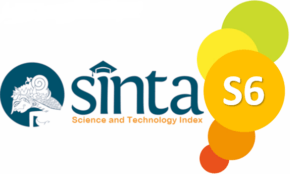The Influence Of Transparency And Accountability On The Level Of Satisfaction Of Muzakki BAZNAS, Musi Banyuasin District
DOI:
https://doi.org/10.19109/iphi.v3i2.19623Keywords:
Transparency, Transparency, Satisfaction Of Muzakki BaznasAbstract
This research was conducted to increase service satisfaction for muzakki at BAZNAS Kab. Musi Banyuasin must report all activities, including management reports, performance reports and financial reports on a monthly, semester (six month) and annual scale, which are reported at the right time and in a fast and precise manner. This research aims to determine the influence of Transparency and Accountability on the Satisfaction Level of Muzakki Baznas Musi Banyuasin Regency. This research uses primary data obtained from distributing questionnaires using a Likert scale. The sampling technique in this research used a nonprobability sampling method. The number of samples obtained was 96 Muzzaki samples at BAZNAS Kab. Musi Banyuasin. Based on the results of research conducted by researchers, it can be concluded that: Transparency has no effect on the level of satisfaction of BAZNAS muzakki in Musi Banyuasin Regency. This is shown by the results of the T test which has a Tcount value of 1.088, smaller than the Ttable value of 1.660. Accountability has no effect on the level of satisfaction of BAZNAS muzakki in Musi Banyuasin Regency. This is shown by the results of the T test which has a Tcount value of 1.655 which is smaller than the Ttable value of 1.660.
References
H S Wibowo, Trasnparansi Dalam Perspektif Islam: Menjadi Pemimpin Yang Berkarakter (Tiram Media, 2023).
Naeimeh Elkhani dan Aryati Bakri, “Review on ‘Expectancy Disconfirmation Theory’(EDT) Model in B2C E-Commerce,” Journal of information systems research and innovation 2,
no. 12 (2012): 95–102.
Nurmala Hayati, “Pengaruh Akuntabilitas, Transparansi, Dan Kepercayaan Terhadap Minat Muzakki Di Badan Amil Zakat Nasional Kota Pekanbaru” (Fakultas Syariah Dan Hukum, 2022).
N T Muhyiddin et al., Ekonomi Bisnis Menurut Perspektif Islam Dan Konvensional (Penerbit Peneleh, 2020).
Rapindo Pindo, Mentari Dwi Aristi, and Intan Putri Azhari, “Pengaruh Akuntabilitas, Transparansi Dan Kualitas Pelayanan Terhadap Kepercayaan Muzakki Dalam Menyalurkan Zakat.
Rochmat Aldy Purnomo, Analisis Statistik Ekonomi Dan Bisnis Dengan SPSS (CV. Wade Group bekerjasama dengan UNMUH Ponorogo Press, 2016).
Tika Maysari,, “ Analisis Penerapan Prinsip Good Gavernance Dalam pengelolahan ZIS Pada Baznas Kab Musi Banyuasin”(2022). hlm 86-87
Ziyana Walidah, “Pengaruh Transparansi, Akuntabilitas, dan Kualitas Pengelolaan Zakat Terhadap Kepuasan Muzakki Pada Badan Amil Zakat Nasional Tulungagung,” 2020.
Downloads
Published
Issue
Section
License
Copyright Notice here












